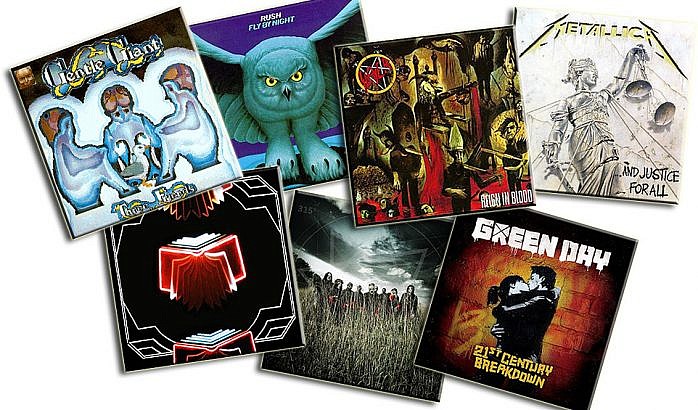(On the Intellectual Aspect of Rock Music)
As early as the 1960s, many parents—as largely influenced by religious and community leaders as well as misinformed media—have always associated Rock music with sex, drugs, and other vices. Some parents believe that their Rock-music-loving teenagers are treading a hedonistic and dangerous path; because of listening to Rock music, their innocent children become capable of killing people randomly and of engaging in other heinous crimes. They stubbornly insist that Rock artists through their nonsense and pure evil lyrics are the culprits behind this.
I could only shake my head in sympathy for such ignorance and prejudice. For one, not all members of Rock bands lead a life of booze and drugs and promiscuity. (And even if many do, their music should be taken separately, without the taint of their troubled and troubling personal lives.) Most significantly, Rock music is not always about sex, drugs, and other excesses. If only they will look into the lyrics of many Rock songs and concepts of many Rock albums, they will realize that these are actually a mine of societal commentaries and literary and philosophical references.
Beyond the Haze and the Booze
Here are a few examples of both commercially and critically acclaimed albums in the annals of Rock music which prove that the diverse genre is not a dumb or stupid kind of music as many self-righteous influential leaders and other misinformed detractors claim.
Three Friends (1972), the third studio release of the British Progressive Rock band Gentle Giant, is a concept album that deals with three childhood friends who each followed a different journey as they were growing up. Each pursued a different career in life—one became a laborer, the second a clerical worker, and the last an artist. In fact, concept albums like this are very common for Progressive Rock bands—a positive aspect of Rock music many critics and moralists often ignore.
Fly by Night (1975), the second studio album of the Canadian Progressive Rock band Rush, features lyrics inspired by J.R.R. Tolkien’s The Lord of the Rings and by the philosophy of the Russian-American novelist Ayn Rand.
Reign in Blood (1986), the third studio album by the American Thrash Metal band Slayer, contains lyrics that dwell on subjects like death, religion, insanity, and murderers—which may simply be likened to a true-crime book or a psychological thriller or horror film.
…And Justice for All (1988), the fourth studio album of the American Thrash Metal band Metallica, features lyrical contents that focus on political and legal injustice.
Neon Bible (2007), the second album of the Canadian Indie Rock band Arcade Fire, is—according to the bandleader, himself—inspired by the idea that watching television makes people absorb ideas unknowingly, affecting how they view the world.
All Hope Is Gone (2008), the fourth studio album by the American Nu Metal band Slipknot, has a theme that revolves around the belief of the band’s lyricist that there are many people who are disguising politics as religion and dictating taste and turning it into policies.
21st Century Breakdown (2009), the eighth studio album of the American Punk Rock band Green Day, is—according to the chief lyricist, Billy Joe Armstrong, himself—a “snapshot of the era in which we live as we question and try to make sense of the selfish manipulation going on around us, whether it be the government, religion, media, or frankly any form of authority.”
Final Note
Rock music has long become a part of pop culture, so it should be patronized, promoted or at the least, acknowledged. It’s been more than 40 years since the decade when typically self-righteous religious and community leaders have started lambasting and discriminating Rock music chiefly because of the unusual styles and theatrics of many of its forerunners. Do you still believe their ignorant and misleading claims? Haven’t these bigots realized by now that the problem really is their narrow minds and their limited understanding of music per se? These music discriminators are the modern counterparts of the witchhunters prevalent in Europe and North America in the period spanning from 1480 to 1700. Sad to say, despite the advancement of human civilization, “witchhunt mentality” still exists to this day.
*Witchhunting is not the hunt for real witches (mythical and fantastic characters depicted in fairy tales and fantasy fiction) for there were none and will never be any in real life; instead, it is the persecution of people whose ideas often challenged those of whoever was in religious or political authority.
























